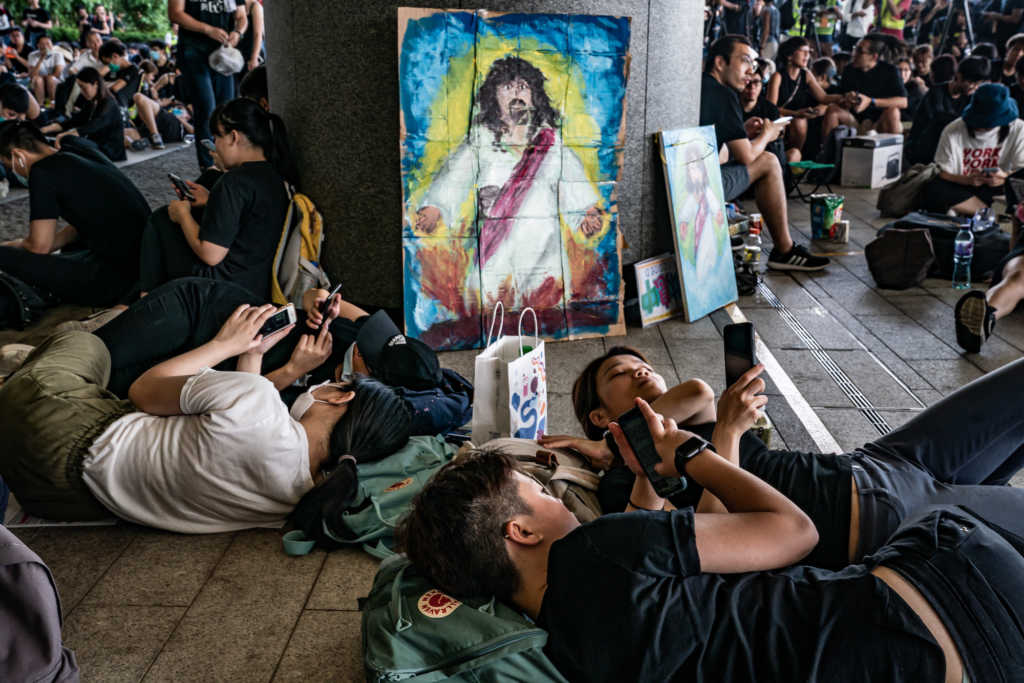Throngs of Hong Kong residents have taken to the streets to protest a new extradition bill that could see arrested locals sent to mainland China to stand trial for their alleged crimes.
After seizing control of Hong Kong in the 1800s, Britain returned the city to China in 1997 with one incredibly important caveat: The city would, at least in part, govern itself for 50 years — until 2047 — before falling back under Beijing’s rule.
China, though, is an authoritative country. The communist regime leading the mainland has fought over the years to control Hong Kong, according to Vox.
The local government introduced the extradition bill after a Hong Kong national, Tong-Kai Chan, admitted to killing his pregnant girlfriend in Taiwan before fleeing back to the former British colony, where he is currently imprisoned on other charges, the Financial Times reported.
After days of intense protest, Hong Kong’s leader, Carrie Lam, who enjoys support from Beijing, issued a rare apology, admitting, “I feel deep sorrow and regret that deficiencies in our work — and various other factors — have stirred up substantial controversies.”
Opponents have called for Lam’s resignation, arguing her decision to “suspend” the pending legislation is simply not enough. Several leaders in the U.S. have also condemned the extradition bill and President Donald Trump has described the Hong Kong protesters as “very effective.”
How are Christians responding?
One of the movement’s most outspoken leaders, Joshua Wong, who was briefly imprisoned for his activism, has been outspoken about his Christian faith.
During a May interview with World magazine, Wong argued Christians aren’t tasked simply with “preaching the gospel and then waiting to go to heaven when we die.”
“We need to be bringing heaven down to earth,” he said. “That seems like a totally idealistic dream, but if we want that dream to come true, how should we let people know that, as Christians, we don’t focus only on trying to increase our salaries and better our careers? We ask, ‘How can we do more for the people around us?’”
He went on to explain authorities in mainland China are particularly fearful of Christianity because “it could influence people to realize the only one they should obey is Jesus, not the regime” and that “contradicts Chinese Communist Party propaganda.”
The Rev. Chi Wai Wu, general secretary of the Hong Kong Church Renewal Movement, said a prayer meeting outside Hong Kong’s main government complex on June 11 ended with the massive crowd singing a Christian hymn, “Sing Hallelujah to the Lord.”
The minister condemned Hong Kong authorities for using tear gas and rubber bullets to confront the largely peaceful demonstrators. With tears in his eyes, Wu said he feels “so sad” for Hong Kong.
“Will the younger generation want to be known as Hong Kong people?” he asked. “Will they love Hong Kong? We will lose the entire generation of young people.”
The Rev. Chu Yiu-Ming, another prominent dissident, told DW.com that he hopes his fellow protesters continue to “resist and fight back” against the extradition bill. Sentenced in April for his role in similar protests against Beijing in 2014, Chu was responsible earlier this month for leading protesters as they sang the Christian hymn.
Another Christian leader, Bishop Joseph Ha Chi-shing, vowed to stay near the protesters and pray with and for them for as long as they continued to demonstrate, according to UCA News.
“No matter how long they stay, I will continue to stay with them,” he said. “The shepherd should not just be with the sheep but also guide them.”
Ha also took the opportunity to remind protesters they are Christians first, before anything else, and must act in accordance to their faith — even in their anger and fear.
“Although we won this battle, we need to continue to use peace, love and justice to arouse society,” the bishop said, “and Christ will stand by us.”



